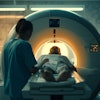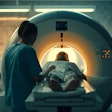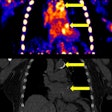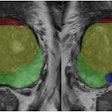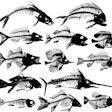
NEW YORK (Reuters Health), Feb 2 - Whether providing expectant parents with an ultrasound "keepsake" image of their unborn child is justifiable is the topic of a "special report" in the February 3rd issue of the British Medical Journal.
Medical professionals generally frown on the practice of performing unnecessary ultrasound scans during pregnancy, out of safety concerns. Nonetheless, for those who offer "boutique ultrasonography," selling antenatal scans has become "a slick business transaction," Geoff Watts writes.
The practice has expanded with technology improvements that now allow high definition 3D snapshots of the fetus and even 4D video. Companies can make up to 250 pounds ($490) from one CD or DVD.
There is no scientific evidence that 3D or 4D imaging offers any genuine medical utility, Watts points out. Also, many physicians wonder how commercial enterprises deal with the discovery of fetal abnormalities.
"The nub of the argument," Watts says, is whether or not medically unnecessary ultrasound exposure is safe.
The U.S. Food and Drug Administration states on its Web site, "Although there is no evidence that these physical effects can harm the fetus, public health experts, clinicians, and industry agree that casual exposure to ultrasound, especially during pregnancy, should be avoided."
The agency considers commercial fetal imaging organizations unacceptable because they operate without medical supervision. In 2002, Watts notes, the FDA announced that "anyone administering ultrasound without a prescription is breaking the law."
Last Updated: 2007-02-01 19:01:18 -0400 (Reuters Health)
BMJ 2007;334:232-233.
Related Reading
Fetal 4D US market grows despite FDA criticism, research find, November 30, 2006
AMA says ultrasound in-utero 'portraits' are bad idea, June 22, 2005
Copyright © 2007 Reuters Limited. All rights reserved. Republication or redistribution of Reuters content, including by framing or similar means, is expressly prohibited without the prior written consent of Reuters. Reuters shall not be liable for any errors or delays in the content, or for any actions taken in reliance thereon. Reuters and the Reuters sphere logo are registered trademarks and trademarks of the Reuters group of companies around the world.
